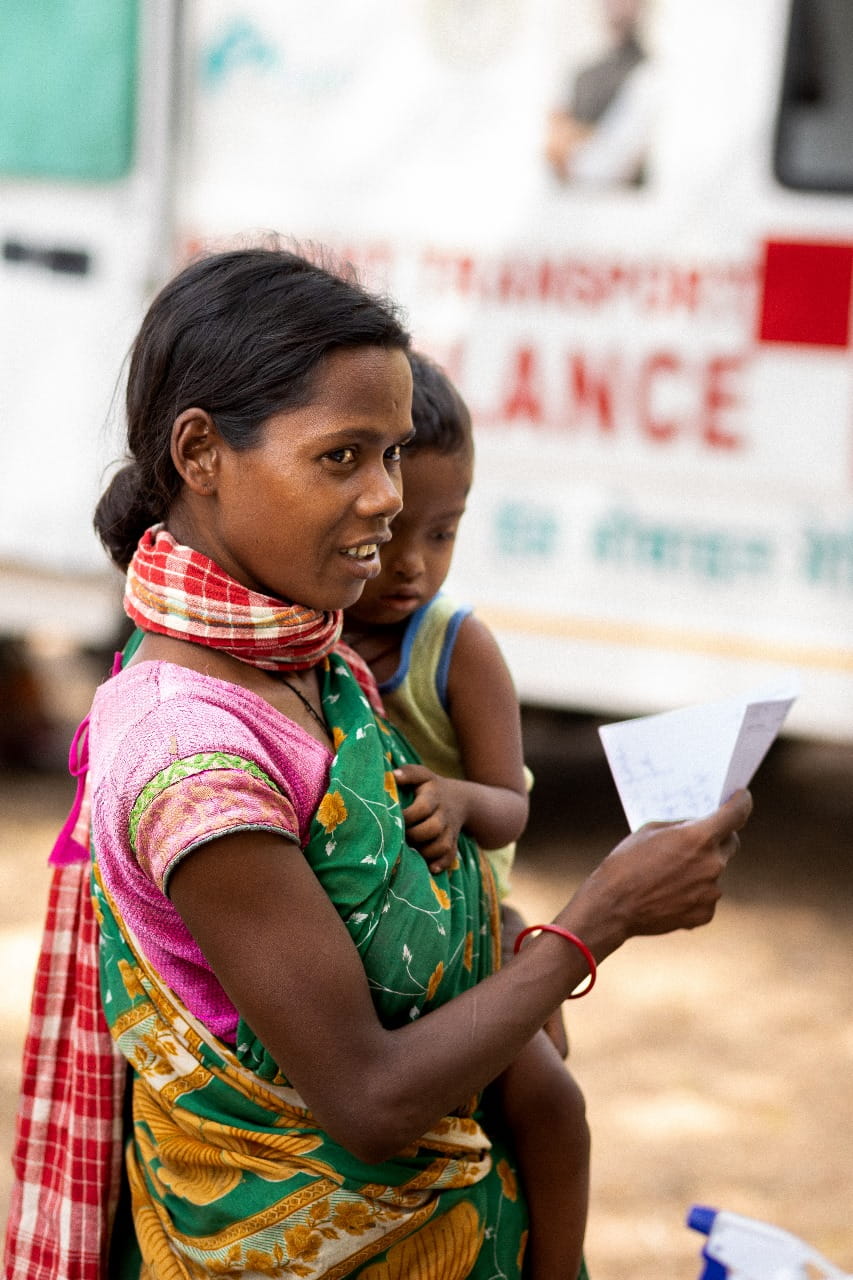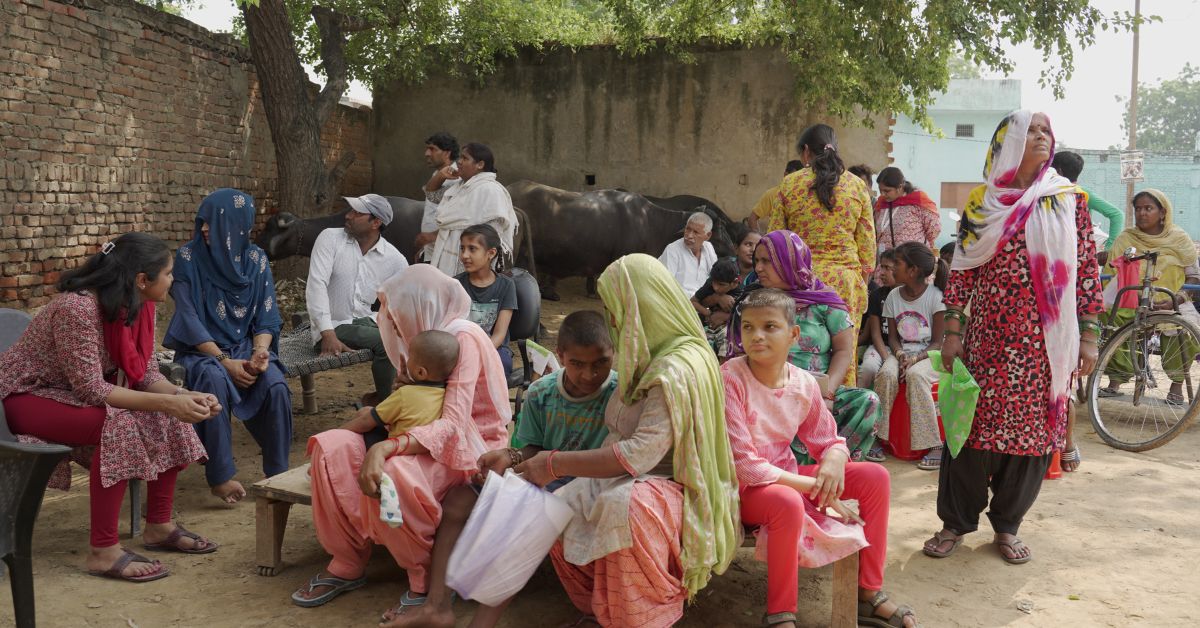This text is sponsored by The Hans Basis
Childhood cancers are a rising downside globally. The WHO states that over 4 lakh kids develop most cancers every year, with India accounting for 50,000 of those instances. Whereas survival charges are excessive in high-income international locations, India nonetheless faces the issues of lack of prognosis, delayed prognosis, entry to care, and continuation of therapy. An ICMR (Indian Council of Medical Analysis) paper states that there’s a want for particular coverage work to deliver childhood most cancers underneath management in India.
Equally, an ICMR-NCDIR (Nationwide Centre for Illness Informatics and Analysis) research discovered {that a} devoted paediatric oncology division was obtainable in 41.6% of presidency hospitals.
Take, as an example, 10-year-old Saksham (identify modified). Residing in Timbi village of Himachal Pradesh, the playful baby began experiencing unexplained fatigue, frequent infections, and fever in 2022. His father, Ramesh (identify modified), a farmer, consulted native medical doctors (for which he needed to journey 20 km), however not one of the drugs they gave labored on the kid.
Saksham was then taken virtually 90 km away, to ‘The Himalayan Hospital’ in Dehradun, the place blood assessments revealed that he had Acute Lymphoblastic Leukaemia (ALL), a kind of blood most cancers. Father to 6 kids, with barely any revenue, Ramesh had already spent about Rs 50,000 for his travels and completely different therapies. The therapy for ALL, medical doctors estimated, can be about Rs 8 lakhs.
“I had misplaced all hope. My revenue was simply sufficient to feed my household. I didn’t know what to do and learn how to save my baby,” says Ramesh.
The physician then knowledgeable Ramesh about The Hans Basis’s Hans Bal Aarogya Karyakram, which helps most cancers therapy and bone marrow transplants. Working with the hospital and the household, the programme has lined the price of chemotherapy, bone marrow transplant, blood transfusions and different medical bills for Saksham, who’s now on the street to restoration.
The Hans Bal Aarogya Karyakram, run in collaboration with the Uttarakhand authorities, is bridging the hole of economic entry for youngsters who can’t afford therapy for vital ailments like most cancers. Thus far, over 2,500 kids have benefited from this initiative and have acquired life-saving therapies.
Serving to mother and father entry high quality most cancers care

Established in 2017 in shut partnership with the state authorities, the programme supplies free therapy to kids aged 0-18 years who’re affected by vital ailments or circumstances, complementing the Rashtriya Bal Swasthya Karyakram (RBSK) and subsequently, Ayushman Bharat schemes by supporting therapy for circumstances exterior the schemes’ purview,
The District Early Intervention Facilities (DEICs), established underneath the RBSK, determine infants and kids with developmental delays, disabilities and ailments. As soon as recognized, these kids are referred to 2 empanelled medical schools, particularly The Himalayan Hospital (Swami Ram Himalayan College) and Shri Mahant Indresh Hospital. The Hans Basis has partnered with these two schools and reimburses the therapy bills for ailments like most cancers.
Whereas the programme is broadly designed, 90 p.c of the sufferers who want help are most cancers sufferers, as most cancers therapies require a number of money and time. The common value of treating frequent cancers in kids like ALL and Acute Myeloid Leukaemia (AML) can simply vary from Rs 5-15 lakhs or much more, relying on the complexity of the illness on the time of prognosis. A lot of the kids who are available in for therapy are both infants, or between the age group of 5-8.
Frequent cancers in kids are completely different from these seen in adults. Dr BP Kalra, Professor of Pediatrics, Division of Pediatrics, Himalayan Institute of Medical Sciences, Dehradun states that leukaemias (most cancers of blood-forming tissues), lymphomas (most cancers of the lymphatic system) are the commonest, adopted by mind and bone most cancers and tumours just like the Wilms Tumour (renal most cancers).
“We see that mostly, kids get most cancers within the first or second yr of life, or within the 5-10 age group. Within the school-going age group, leukaemias and lymphomas are most typical. The result is usually good on this age group,” says Dr Kalra.
The Himalayan Institute caters to kids from throughout Uttarakhand, Uttar Pradesh, and generally Punjab, Haryana, Himachal Pradesh and extra. The explanation, the physician provides, is due to lack of amenities for therapy, which makes mother and father and kids journey far and vast for fundamental entry.
What is required for good outcomes, in accordance with Dr Kalra, is an early, immediate, appropriate prognosis which must be adopted by efficient, evidence-based remedy after which supportive care is paramount.
Serving to 2,500 kids get most cancers therapy

Childhood most cancers administration in Low and Center-Earnings International locations (LMICs), together with India, is characterised by delayed prognosis and therapy initiation, insufficient/incomplete therapy and low survival price, in accordance with a report in Indian Most cancers Society.
For starters, mother and father should concentrate on the frequent signs and go to a health care provider once they discover these together with: recurrent fevers, lack of urge for food, lack of weight, swelling in elements of the physique, persistent ache, sudden tiredness, fatigue, complications, any lumps or mass.
After step one the place households discover signs and entry care, the second step is medical analysis and prognosis. Services just like the DEIC ought to be capable of assist on this step. The final and most important step is accessibility to therapy. As the vast majority of public hospitals don’t have paediatric oncology care, mother and father both must take them far to a authorities hospital that has the therapy, or go to a personal hospital close by.
The position of trusts like The Hans Basis is essential in such instances, as they assist households afford high quality healthcare and save the lives of their kids by well timed therapy.
Dr Kalra says that his largest request to oldsters is to proceed therapy.
“Dad and mom should stay hopeful and proceed therapy. The outcomes are good and most youngsters do nicely, after early prognosis. We’re grateful to The Hans Basis which makes it doable for therefore many kids to entry therapy,” provides Dr Kalra.
The Hans Bal Arogya Karyakram, which has been engaged on floor since 2017, has helped over 2,518 kids. A medical audit discovered that the survival charges of youngsters had improved by greater than 80% post-intervention.
Primarily based on the success of and the learnings from the programme in Uttarakhand, The Hans Basis is now able to develop its help to kids affected by most cancers underneath its Hans Paediatric Care programme and lengthening providers to RN Tagore Hospital in Kolkata, G Kuppuswamy Naidu Memorial Hospital in Coimbatore, Narayana Multispeciality Hospital in Howrah and SGVP Hospital in Ahmedabad.
Their purpose is to make entry to most cancers therapy doable for youngsters throughout the nation, no matter their location.
“There’s a method out. The illness can occur to anybody. Don’t lose hope and have endurance and religion in your physician. Attempt the therapy and full it,” says Dr Kalra.
(Edited by Padmashree Pande; All footage courtesy: The Hans Basis)
